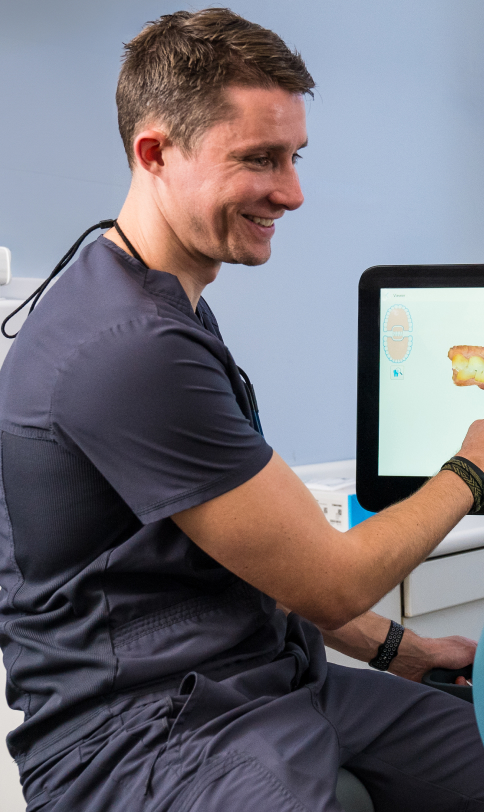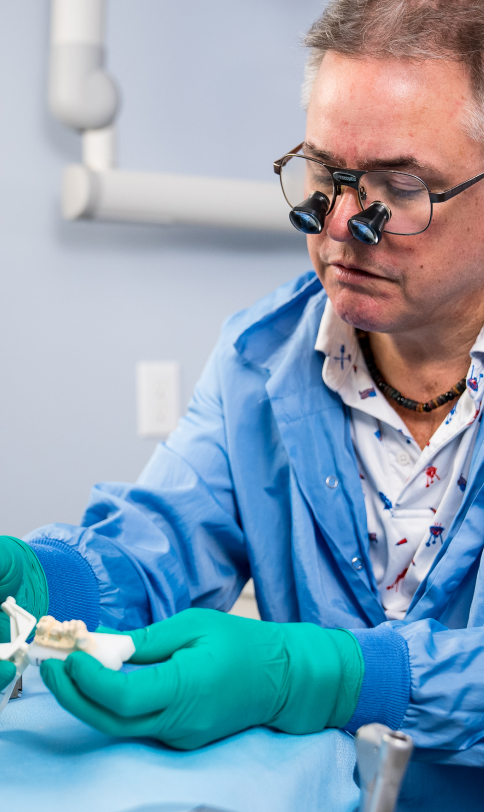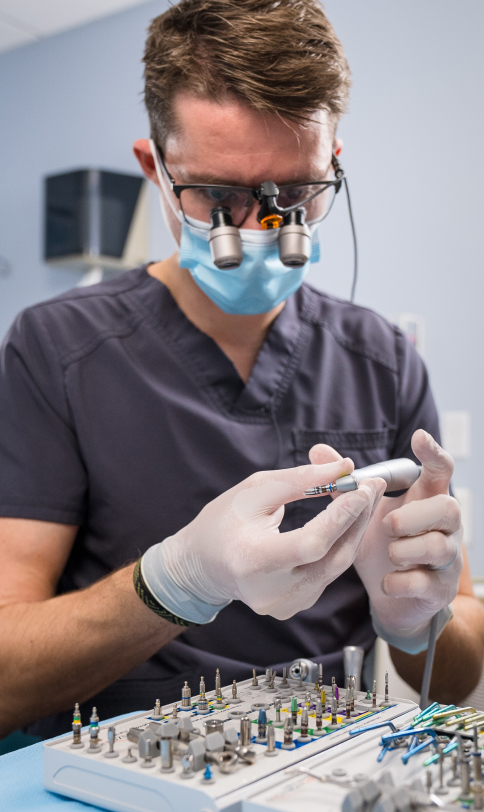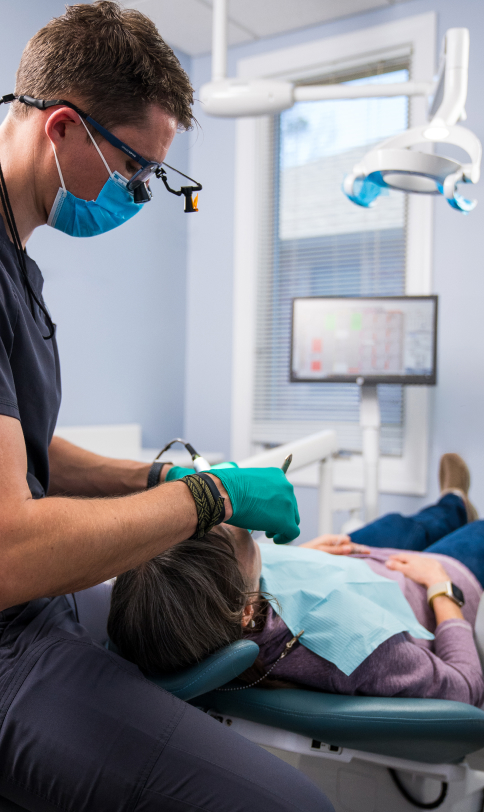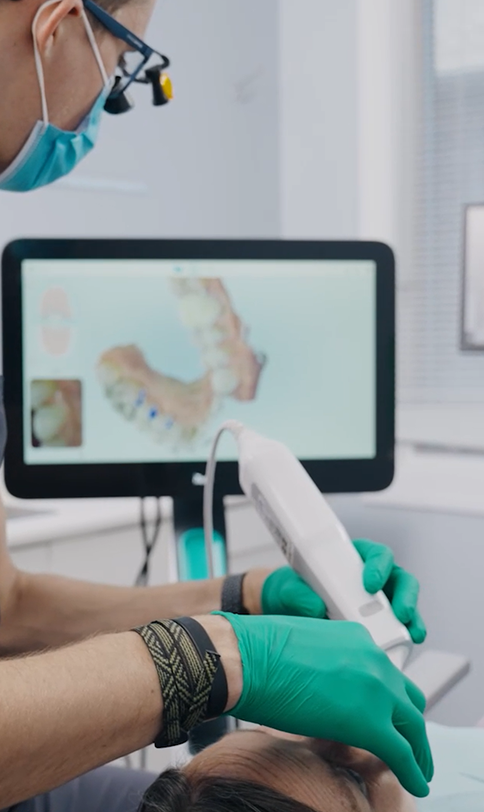Pus builds up around a tooth due to an infection, causing a painful disease known as a tooth abscess. Treating a dental abscess early on is essential to avoid serious consequences. This blog will explore whether a tooth abscess qualifies as a dental emergency and what steps to take if you encounter this issue. By understanding the urgency, you can ensure timely treatment and avoid further health problems.
What is a Tooth Abscess?
A pocket of pus that develops in or around a tooth due to bacterial infection is known as a tooth abscess. This infection originates from untreated cavities, gum disease, or tooth trauma.
An abscess can develop at the tip of the root (periapical abscess) or in the gums (periodontal abscess). Common causes include poor oral hygiene, tooth decay, and injury. Symptoms often include sharp, throbbing pain, swelling in the gums or face, sensitivity to hot or cold foods, and fever. You may also experience trouble swallowing or an unpleasant taste in your mouth.
The infection can spread if not treated, leading to severe complications. Therefore, recognizing and addressing a tooth abscess early is crucial for effective treatment and recovery.
Why is Prompt Treatment Essential?
Treating a dental abscess quickly is essential to preventing serious consequences. An untreated abscess can spread the infection beyond the tooth, posing significant health risks.
One of the significant risks is the spread of infection to surrounding tissues. If the infection migrates to the face or neck, it can cause cellulitis, a painful and potentially serious skin infection. Cellulitis can spread rapidly and may require hospitalization.
Additionally, untreated abscesses can lead to Ludwig’s angina, a severe and potentially life-threatening condition where swelling occurs under the tongue. This swelling can obstruct the airway, making breathing brutal and necessitating immediate emergency intervention.
The infection from an abscess can also enter the bloodstream, causing sepsis, a life-threatening systemic response. Sepsis can lead to organ failure and requires urgent medical treatment.
In rare cases, untreated abscesses can result in brain infections, such as meningitis or brain abscesses. These are hazardous illnesses that, if left untreated, can result in death or long-term health problems.
Ignoring tooth abscess symptoms can also lead to chronic pain and ongoing discomfort, significantly impacting your quality of life. Profound discomfort and edema may make speaking, eating, or performing daily tasks difficult.
To mitigate these risks, seeking dental care as soon as symptoms appear is crucial. If you experience a dental emergency like severe pain, significant swelling, or difficulty swallowing and live in Cary, NC, search for an emergency dentist near Cary NC and make sure you now open a professional dental service page. You will receive timely treatment and prevent these potentially severe outcomes. Taking swift action can save your teeth and protect your overall health.
How to Recognize an Emergency?
Specific symptoms indicate that a tooth abscess may be an emergency. Severe, persistent pain, pronounced facial or jaw swelling, high fever, and difficulty breathing or swallowing are critical signs. If you experience these symptoms, you need urgent dental care.
A dental emergency differs from a routine dental issue. An emergency requires immediate attention, while less severe symptoms can wait for a scheduled appointment. For instance, a regular dental visit may suffice if you have a mild toothache or slight sensitivity.
However, if symptoms escalate, seek help from an emergency dentist to address the problem promptly.
What to Do If You Suspect an Abscess?
As soon as you suspect you have a tooth abscess, you should take action to control the discomfort and stop the infection from getting worse.
First, wash your mouth with warm salted water. This straightforward cure might help clean the area surrounding the abscess and lessen discomfort and swelling. Half a teaspoon of salt should be combined with a glass of warm water, and you should swish it in your mouth for about 30 seconds before spitting it out. Repeat this several times a day.
Acetaminophen and ibuprofen, two over-the-counter pain medications, can help control discomfort and minimize inflammation. Aspirin can irritate the gums, so pay attention to the dosage recommendations on the container and refrain from administering it directly to the affected area.
You can maintain good oral hygiene by carefully brushing and flossing the affected area. Be gentle to avoid aggravating the abscess. If brushing is painful, use a soft-bristled toothbrush and avoid the abscess area as much as possible.
Steer clear of applying cold or heat directly to the abscess. Heat can worsen the infection, while ice might temporarily numb the area but won’t address the underlying problem.
Despite these home care measures, seeing a dentist as soon as possible is crucial. A professional diagnosis is essential to determine the exact cause of the abscess and the appropriate treatment. A dentist will likely prescribe antibiotics to control the infection and may perform procedures such as drainage or a root canal to address the abscess effectively.
Ignoring the need for professional treatment can lead to serious complications, including the spread of infection and long-term damage to your health.
Treatment Options for a Tooth Abscess
Treatment for a tooth abscess usually involves antibiotics to clear the infection and drainage to remove the pus. Depending on the severity, your dentist may recommend a root canal to save the tooth or extraction if it’s beyond repair.
Antibiotics help control the infection, while drainage removes pus and reduces pressure. A root canal involves cleaning out the infected tissue and sealing the tooth to prevent future infections. In some cases, removing the tooth might be necessary to eliminate the source of the infection.
Long-term care includes regular dental check-ups and good oral hygiene to prevent recurrence. Follow your dentist’s advice to ensure complete recovery and avoid future dental emergencies.
A tooth abscess should be treated as an emergency if severe symptoms are present. Early intervention prevents serious complications and ensures effective treatment.
If you have a dental emergency near Cary, NC, be it severe dental pain, swelling, or something else, it is essential to find help immediately. Finding a local Cary NC dentist who is open can make all the difference in managing your dental emergency effectively. You can search for a “dental emergency near me open now” online. For prompt relief and assistance, get in touch with Legacy Dental. We can provide immediate care and help alleviate your symptoms. Talk to our team now.


